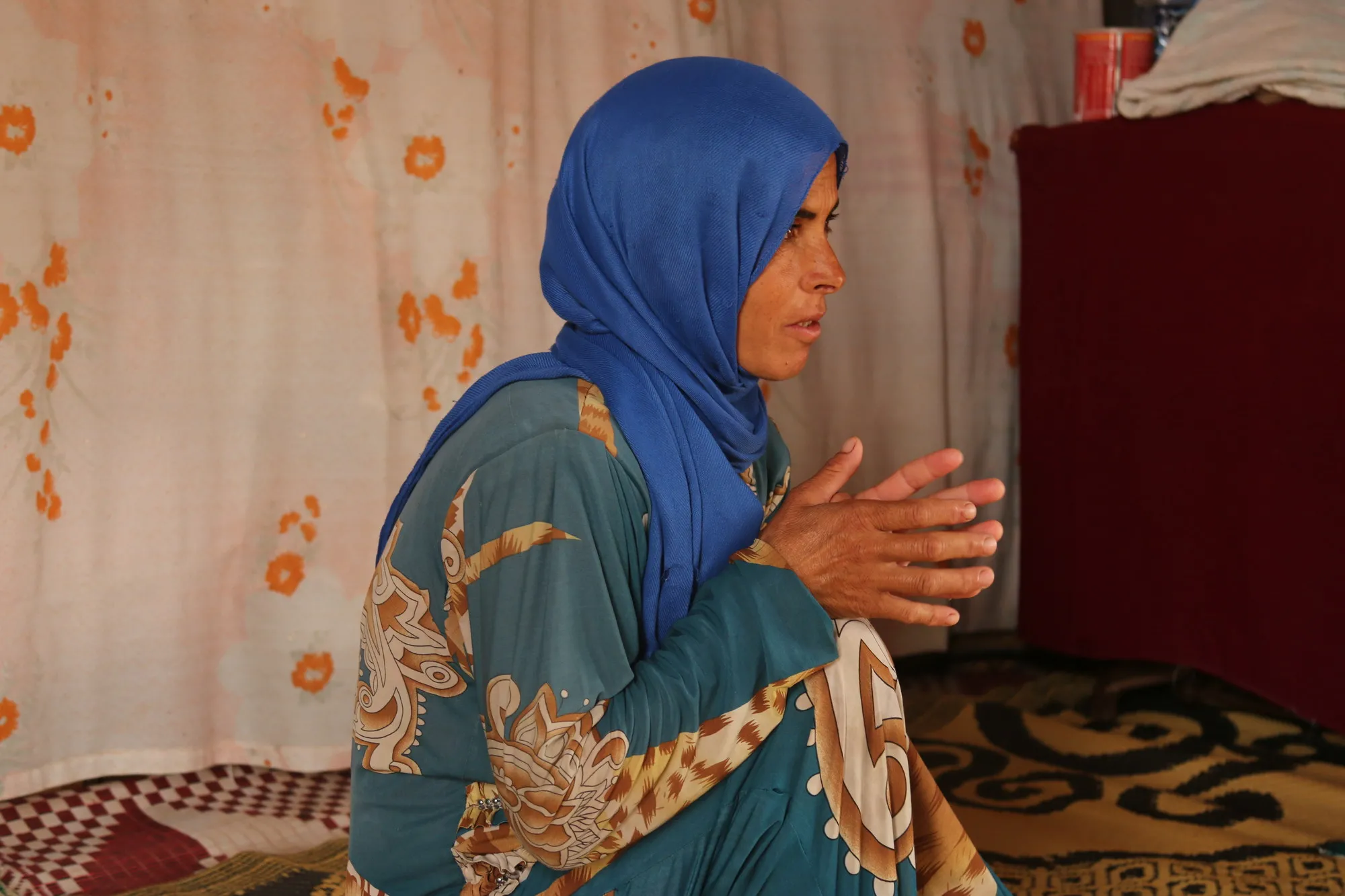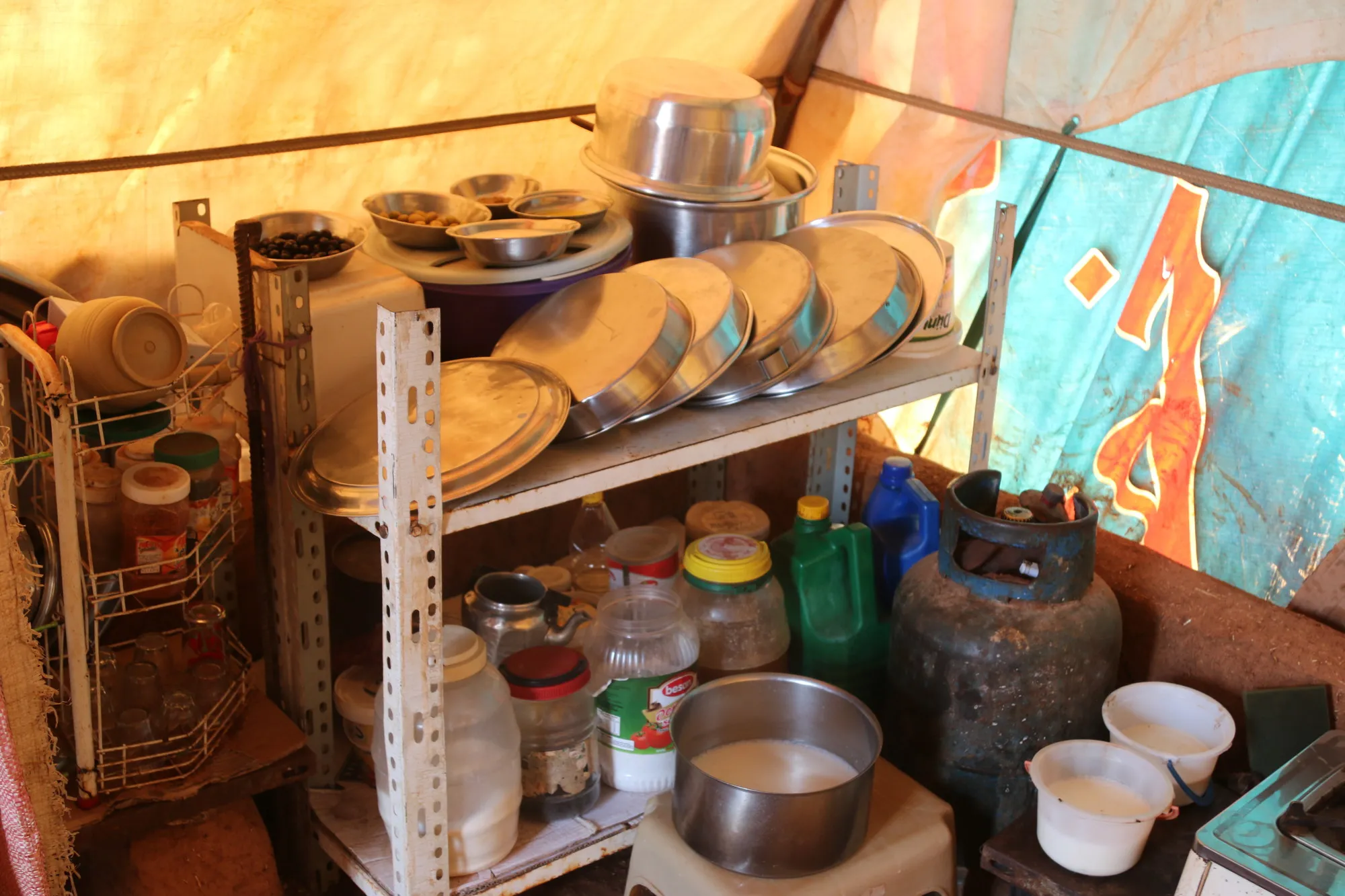The latest escalation in hostilities in northwest Syria is now in its sixth month. Hundreds of civilians have been killed or injured due to airstrikes and shelling, while some 630,000 people were displaced between May and August, as they fled their homes to escape war. With nowhere else to go, the majority of displaced families have been forced into makeshift camps near the Turkish border. These densely populated areas are now the only place people can escape the violence in Idlib.
Amira* is from a small village in Idlib’s southern countryside. She has a six-year-old daughter and a 13-year-old son and currently lives with her children and husband in a camp near the Turkish border. “When the war started in Syria almost nine years ago, we left our house for the first time and moved to the city of Saraqib in central Idlib. We stayed there only for one month and have been displaced countless times since then. We had to escape every time violence spread to areas where we lived.”
Amira’s family moved again a few months ago when they fled Kafr Nouran in southwest Aleppo. “We stayed there for several months but, once again, we had to leave because it was not safe anymore. We arrived in this camp, in the north of Idlib, a few months ago and have been trying to settle in.


